Inclusion Panel Our Inclusion Panel is helping us improve the way we plan, deliver and support research.
The Health Foundation’s research team set up the Inclusion Panel so that people whose views and experiences are not considered enough in planning, delivering and supporting health and social care research have opportunities to influence these processes and the outcomes of the research.
Panel members advise and challenge our staff and grant holders on the research we plan, fund and deliver – supporting our aim of contributing to a healthier population. Members come from all parts of the UK and have a wide range of lived expertise, knowledge and skills.
Members encourage staff and grant holders to address inequality and inclusion issues in their work better by:
- advising on the right questions to ask
- helping them interpret their results
- advising on how to share results with diverse stakeholders to better create change
- identifying areas for research.
The panel meets once a month for 2 hours to discuss one project. Staff or grant holders can also work with smaller groups or individuals from the panel. The research team manages these requests on a case-by-case basis.
Members who don’t represent an organisation that pays them can claim a payment (honorarium) for their involvement.
Meet the Inclusion Panel
We asked Gilly:
Why did you join the Inclusion Panel?
I was invited to join back in August 2020 because of my interest in inclusion, equality of access to health and social care services, and improving access to heath inequalities research for underrepresented communities from an age and ethnicity perspective.
What experience, knowledge and skills do you bring to the panel?
I have been working in both local government and central government – and with a diverse range of young people and non-white communities – for more than 25 years. I bring a significant range of professional and voluntary experiences as well as lived experiences of caring for parents who have suffered strokes (one has vascular dementia). I am very skilled at chairing, facilitating, presenting, planning and involving all in positive group discussions.
What do you enjoy most about being part of the panel?
The quality of contributions from all the panel members, especially the public/patient representatives. From our first panel meeting we have been on the same page in terms of our combined views of inclusion. We are also all very passionate and confident in expressing honest feedback to the various presenters who have sought our views.
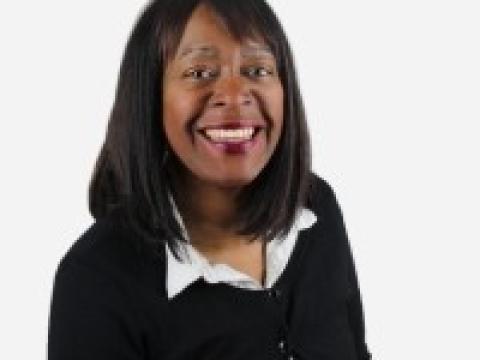
We asked John:
Why did you join the Inclusion Panel?
I joined the panel to have a voice as I have a disability and currently we do not have that with our government which affects mental health and quality of life.
What experience, knowledge and skills do you bring to the panel?
I have lots of lived experience and know things have to change with the current system. Knowledge is power and power is knowledge – I love sharing that knowledge and empowerment with the Health Foundation and panel members. I am a people person, problem-solver and a team player.
What do you enjoy most about being part of the panel?
Together our voices are louder and more powerful than they might be individually.

We asked Sarah:
Why did you join the Inclusion Panel?
The Inclusion Panel allows me to draw on my personal and professional experiences, having been diagnosed as autistic as an adult and taken this knowledge into research, policy, clinical settings and the charity sector. I have supported autistic people to have their views heard by the government, by researchers and in designing accessible health care services. I’ve also explored the inclusive involvement of disabled people in different areas of local and national decision making by looking at the processes of how we can actively include and exclude people.
What experience, knowledge and skills do you bring to the panel?
I bring experience of co-production, involvement, research, policy and campaigning within health care and education. By utilising my own experience of being disabled and a broader view of the barriers to good collaboration in health and care I bring a critical and hopefully helpful perspective to the panel and projects that are brought to our consideration.
What do you enjoy most about being part of the panel?
I appreciate the variety of projects and scope that the panel which showcase the breadth of how and when health and care can be impacted by public involvement and reflections.
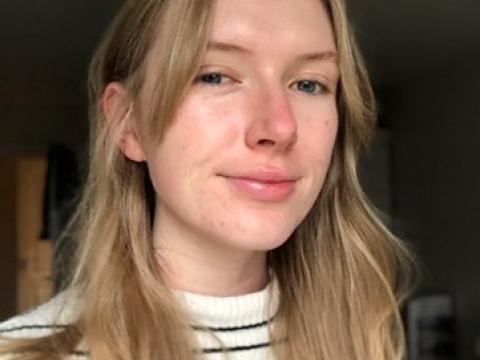
We asked Claire:
Why did you join the Inclusion Panel?
- to provide representation and visibility for the trans community
- to increase awareness of trans issues
- to address assumptions about trans people
- to help research to be trans inclusive.
What experience, knowledge and skills do you bring to the panel?
- lived experience being transgender
- contacts within the trans community
- analytical and logical, but tempered with empathy and understanding
- good at seeing detail, picking up patterns and looking at bigger picture issues.
What do you enjoy most about being part of the panel?
Learning from the experiences and perspectives of other panel members – there is a huge overlap of experiences and issues across every minority community that is shared with the trans community, and many people don’t realise that.

We asked Nanik:
Why did you join the Inclusion Panel?
The Inclusion Panel offered an opportunity to influence change in the Health Foundation – in particular to drive agendas around personal and public involvement and equality, diversity and inclusion in the research work funded by the organisation.
What experience, knowledge and skills do you bring to the panel?
- I am both a stroke and cancer survivor.
- I have a professional background in education and have worked across all sectors, including schools, colleges, local education authorities and higher education.
- I have been a lay reviewer for the National Institute for Health and Care Research for some years and have been a committee member on Programme Grants for Applied Research, the Policy Research Programme, and most recently joined the Research for Social Care Programme.
- I have recently been recruited as a member of the Academy of Medical Sciences Patient and Carer Reference Group.
- I have experience of reviewing research applications and presenting my reviews in committee meetings.
- I am committed to research that addresses health inequalities and engages with meaningful patient and public involvement and engagement – in particular, engaging with inclusion and diversity issues.
- I am founding member of the Q Community and a Q assessor.
- I have links with service user and community groups and have been an active member of a stroke and family group based at King’s College London.
What do you enjoy most about being part of the panel?
The Inclusion Panel is unique because it offers an opportunity to communicate with other lived experience experts in an open, honest exchange without fear or favour. Nothing is off the table and people can exchange ideas, share and learn from each other.
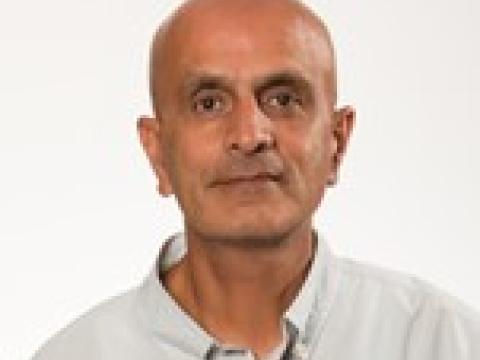
We asked Sarah:
Why did you join the Inclusion Panel?
- positive experience of working with the Health Foundation in the past
- interest in patient and public involvement (PPI)
- remit of the panel to address inequality and inclusion issues in research that the Health Foundation plans, funds and delivers
- curiosity about how the new initiative would work
- keenness to collaborate with people from a range of backgrounds and with different experiences of accessing health and social care services.
What experience, knowledge and skills do you bring to the panel?
- lived experience of mental health struggles
- board roles:
- National Mind trustee (2011–20)
- non-executive director, Applied Research Collaboration, East of England (2011–19)
- quality improvement:
- co-lead for successful PROMISE restraint reduction project (2014–17)
- Q Community member
- PPI consultant, pan-London Safety in Mental Health Settings project
- PPI lead, Essex 5-year mental health strategy refresh
- research:
- co-chief investigator on complex mental health research project MINDS
- PPI Co-lead, National Priorities in Mental Health Implementation Network.
What do you enjoy most about being part of the panel?
- Critiquing and discussing research plans with Health Foundation academics
- Being part of a supportive, respective community allowing room for constructive challenge
- Building relationships and co-learning with fellow panel members.
We asked Leo:
Why did you join the Inclusion Panel?
I joined the Inclusion Panel because I wanted to provide a voice for young people with long-term health conditions and make a difference to shaping health care for the future.
What experience, knowledge and skills do you bring to the panel?
I am 21 years old and have cystic fibrosis, a long-term lung disease, which means I’ve dealt with medication, hospital visits and general health care for most of my life. I have also recently been involved in trials of online care facilitation with my doctors.
What do you enjoy most about being part of the panel?
I really enjoy hearing about the research which is being done to better health care for everyone. The huge range of ideas brought to the table by the panel always provides insight from fresh perspectives.
We asked Mandy:
Why did you join the Inclusion Panel?
I joined the Inclusion Panel because it is important for patients and carers and the public to be involved in discussions about health and social care.
What experience, knowledge and skills do you bring to the panel?
I have been a carer most of my life and am able to bring that perspective to discussions. I also have 7 years of experience taking part in various co-production projects, research funding committees, and strategic boards.
What do you enjoy most about being part of the panel?
I enjoy being part of the Inclusion Panel because we get to discuss a wide variety of topics, the panel has a diverse range of experiences and perspectives, and we have an impact on the projects that we work with.
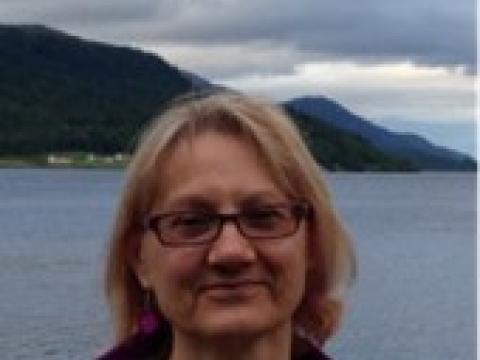
We asked Karen:
Why did you join the Inclusion Panel?
I joined the panel at the start as it was one of the invitations that came through my developing networks. When I retired I needed something to engage with, and having always been passionate about the NHS, I had started to try and find out how it worked. Hence my journey into the unknown!
I am committed to equality of access to health and social care and that the citizen voice is heard across all groups which represent and take decisions about them. I think of myself as an agitator and challenger of attitudes!
What experience, knowledge and skills do you bring to the panel?
I have ‘travelled’ through Berkshire Healthcare NHS Foundation Trust appraisal forum and revalidation team, the Thames Valley and Milton Keynes patient experience oversight group, the local suicide prevention group and various research trials. I am now an associate to the Oxford Academic Health Science Network (AHSN) and a member of its learning disability advisory group. I’m also involved locally with homeless and vulnerable people.
My professional former life was in education (teaching, training, development and consultancy). I started a national awarding body with five other colleagues which has been extraordinarily successful in providing accreditation for non-academically minded pupils. I was also a trustee of an independent advocacy service for people with learning disabilities and a local authority chair of governors. So, I had some experience of groups and diverse peoples, and having run national conferences, I am confident speaking about things I am passionate about.
What do you enjoy most about being part of the panel?
I like the challenge of being with new people with honest, often diverse ideas that they are not afraid to share. I find this a stimulating learning experience. I also hope that the Inclusion Panel will make a difference to decisions being made about me without me!
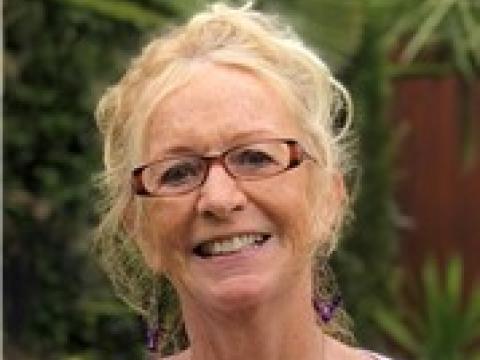
Watch this video to find out what our members have to say about the panel:
Timeline of the Inclusion Panel’s work so far
Colleagues from the Health Foundation’s Q team informed the panel of how they were planning to change how they collect and use personal data to improve equity, diversity and inclusion in their work and welcomed lots of feedback from the Inclusion Panel.
The panel then switched to festive mode and celebrated all that the panel had achieved throughout the year.
Our new Equity, Diversity and Inclusion Lead, Alyssa Ordu met the Inclusion Panel and talked about her new role within the Health Foundation, how she is going to enhance the area of equity, diversity and inclusion within the organisation and help the Research team celebrate the panel.
The panel discussed its future, how the broader health and social care community could be informed of the panel’s achievements, how the Health Foundation benefits from the work of the panel and how it could work with the foundation to be even more productive.
The focus of this May’s meeting was to review feedback given to the panel by past presenters and to look at ways in which feedback could be improved more generally. A number of presenters attended to discuss their own experiences of engaging with the panel and giving feedback following the session. This showed that feedback is as important for presenters as it is for panel members. The meeting finished with panel members discussing where they felt the panel had made the most difference. Members agreed that the panel enables everyone to have a voice and be heard which is one of its biggest achievements.
Colleagues from the Health Foundation’s research team made a return visit to the panel to discuss a new approach for the way the panel could work. The group discussed what they did and didn’t like about the new approach and what needs to be done to make the new approach work. One of the key things that the panel emphasised was a desire to be involved in research programmes/projects earlier in the design process and to continue to be involved throughout. With these improvements in mind, we are working with current panel members to develop our approach and are aiming to launch the next phase in early 2024.
Q is delivered by the Health Foundation and supported and co-funded by partners across the UK and Ireland. Staff from Q talked to the panel about their Q Visits – and how they could make sure that visits are genuinely inclusive. The group discussed barriers and enablers as well as making a lot of useful suggestions.
Following the panel’s suggestions, the Q team have made their website more accessible and produced documents that work for screen readers, and now offer large print documents as needed. New videos have also been made to show the members of the Q Visits team, so that anyone going on a visit knows who they are going to meet in advance.
Colleagues from the Health Foundation’s research team consulted on the future of the panel. The panel members were specifically asked how they would design a new group, what changes they would like to see and which aspects of the panel they would like to keep.
The panel then switched to festive mode and had some fun playing games.
Colleagues from the Research team consulted on the future of the Inclusion Panel. The panel discussed how the feeling of a community within the current panel could be maintained, the best ways to communicate with a new larger group and the opportunities and risks of the proposed approach.
The proposed approach highlighted that a wider group with more lived experience is formed and that members of the group/network are invited to work closely with Health Foundation teams on projects from the very beginning, to allow public opinions to be heard throughout the project to ensure inclusion is prioritised.
Colleagues from the improvement team told the panel about an exhibition they were planning to show, exploring how the NHS could be different in 2040 when it achieves net zero. They talked about hoping to influence NHS leaders and policymakers with a view to accelerating this achievement. The team presented various scenarios and asked the panel how net zero could affect people on a personal level, locally and nationally. The subject matter was highly emotive, making for a very lively meeting.
This panel meeting stepped away from the usual setup where Health Foundation colleagues and award holders present to the panel. Instead, the panel and external colleagues from the IMPACT Centre's Co-production Advisory Group co-created a session on co-production. This looked at how co-production can be genuine, how to ensure meaningful outcomes, and top tips for working in this way. The meeting was very productive and lively, and both panels enjoyed working together.
Colleagues from the insight and analysis team brought their new project investigating the delivery of high-quality health and care in new ways involving technology. They used time-travelling character based scenarios to get the panel's imaginations running wild, which produced some amazing results.
Anita Mehay, part of the insight and analysis team, said:
'We are hugely thankful for the panel members' comments, ideas, enthusiasm and time to talk about our early stage project on tech-enabled models of care. We wanted to come to the panel at a very early stage of the project and it was hugely valuable to have the discussions together as it stimulated many thoughts and ideas we might not have generated ourselves. We were particularly struck by how the panel engaged with the personas and the range of opportunities with technology – from apps and panic buttons to moveable kitchen counters and voice activation in the home. Lots of creativity!’
An independent research consultant joined to discuss the future of the panel. They asked panel members to imagine it was 2025 and look back at what the initiative had achieved. The group considered what the future could look like and what the panel might have done by this point, including how and why they would have achieved these things. The consultant also asked for help with interviewing senior Health Foundation staff, gathering views on how the inclusion panel might look going forward.
Colleagues from the Health Foundation’s improvement team brought ideas for a new funding programme to the panel. The programme will investigate how technology could support new approaches to care within home and community-wide settings.
The panel were asked:
- What opportunities are there for technology to improve care in the home and community?
- How might technology affect health inequalities?
- How can we ensure this funding programme is relevant to people who access care in the home and community?
Laura Wallace, part of the improvement team, said:
‘We really enjoyed our session with the inclusion panel. We had been slightly apprehensive that our topic was too broad to discuss, but the conversations were well facilitated and productive. The panel’s enthusiasm helped bring our questions to life and they have given us a lot to think about. We know that their contributions will be really valuable in shaping our research going forward.’
Colleagues from the Health Foundation’s REAL Centre are setting up two new research units that will carry out research on how decisions are made within health and social care settings. The units will support policy and decision makers.
The team asked the panel for their thoughts on:
- the importance of informed decisions about health and social care
- how the public could be more involved in improving the ways in which health and social care decisions are made
- what researchers need to consider when they plan to gather data from patient groups, people who seek or receive social care, and individual members of the public.
Colleagues from the Health Foundation’s strategy team consulted the panel on the 2022 strategy refresh. The team asked the panel how they could involve a wide range of people, create a shared foundation for engagement and involvement for now and the future, and provide senior management with recommended activities to carry out from 2023 to 2025. The team received a lot of suggestions and feedback from the panel. The strategic plan will be presented to the Health Foundation’s Board of Governors in the second half of 2022 and the team will share the strategy with the panel once signed off by the board.
With funding from our COVID-19 Research Programme, a team from the University of Glasgow is using microsimulation models to explore the impacts of income and welfare policy responses to COVID-19 on inequalities in mental health. They explained how creating what-if scenarios based on computer simulations work and what they were using them for. They asked the panel which tax and welfare policies they deemed best to support people’s mental health, how the team should share what they find out and what concerns the panel had about using computer simulation to do the research.
Daniel Kopasker, part of the team at the University of Glasgow, said:
‘Please pass on our sincere thanks to the panel members for their lively participation. It was evident that there were concerns about gaps in our data. When reporting our results, we will ensure that we discuss the implications of these gaps. We realised that we must also do more to highlight the strengths of our data. The suggestion to use infographics to present numerical results was useful, and it was clear that we should supplement numerical results with short examples of people’s experiences of the benefits system.’
The panel shared their thoughts on the past year and future recruitment to the panel – especially how we make our recruitment processes more inclusive. The panel also discussed ideas for a future showcase event to share what we have all learnt from being part of this initiative. The panel then switched to festive mode and had some fun playing games. It was a lovely end to an intense year.
Colleagues from the Health Foundation’s research team consulted the panel on their new strategy to improve inclusion. They wanted to ask the panel for help with developing the strategy, particularly looking at how to fund, plan and share research in more inclusive ways. The panel gave the team food for thought with regards to potential process and organisational changes.
The team will share the finalised strategy with the panel in Summer 2022. The team may ask to revisit the panel to consult on how to carry out specific areas of work suggested
Colleagues from the communications team consulted the panel on updating our house style guide, Write right. They were especially interested in hearing the panel’s thoughts on how we should write about disability, race and ethnicity, gender and sexual orientation, and poverty and inequalities.
Following a break for the summer holidays, members joined us in September to discuss their ideas for an event showcasing the Inclusion Panel’s story. A subgroup of the panel is now working with the Foundation and Furner Communications to plan the event. We expect it to happen in early 2022.
Colleagues from the Health Foundation's REAL Centre consulted the panel on plans for their upcoming REAL Centre Insights report.
The panel’s suggestions were really wide-ranging but unfortunately not all of the panel’s suggestions could be followed up. Part of this was driven by the data. For example, one suggestion was for more detailed analysis for specific demographic groups. The team were unable to do this analysis as the datasets did not always capture this level of detail. In other cases, the sample sizes would have been too small to analyse.
Claudia Barclay, part of the REAL Centre team, said:
'Two key things stick out for me. Firstly, the panel highlighted the importance of providing different ways for people to digest the report (for example, shorter explanations and visual options such as presentations or videos). We have spoken with our communications team and are planning to provide a presentation and potentially an infographic alongside the main report to give more options for the reader. Secondly, the panel also recommended we listen to stories from those using social care to consider the human aspect of the work. We have arranged follow-up sessions with some panel members to hear their stories and hopefully incorporate this thinking into the report.'
With funding from our COVID-19 Research Programme, a team at Newcastle University is trying to uncover how and why some communities have been affected more than others by COVID-19. They explored these questions with the panel.
The panel provided fresh ideas on factors that may affect geographical inequalities in COVID-19 that the research team (drawing on established literature) had not thought of. They are now using the new factors where there are data available to measure them.
The team is currently preparing a paper on how inequalities in COVID-19 (deaths and cases) have evolved and another – which draws most on the panel’s input – exploring which factors have impacted these inequalities.
Clare Bambra, part of the team at Newcastle University, said:
'The Inclusion Panel was extremely well run and thought-provoking with fantastic ideas for our research project. It also offered more fundamental challenges and insights into how we should communicate our science – to all parts of the public.'
A team from the Academy of Medical Sciences (AMS) asked the panel about the public engagement aspects of their review of the key challenges likely to put pressure on the health and social care system over winter 2021/22.
The discussions with the Inclusion Panel helped shape the team’s public engagement workshops. AMS also shared the panel’s insights with their Expert Group, which in turn influenced the group’s input.
AMS published their analysis in July, acknowledging the Inclusion Panel’s contributions in the paper that was presented to the government’s Scientific Advisory Group for Emergencies (SAGE). The report was then cited in the UK Government’s Autumn and Winter Plan.
In 2020 we supported two studies as part of the Welfare at a Social Distance project. Researchers from the project asked the panel about the fairness of Universal Credit and the pros and cons of making part of the benefits system work like furlough did.
Ben Baumberg Geiger, part of the project team at the University of Kent, said:
'We learnt a lot about the problems people had had with the benefits system. This was partly about the problems of dealing with a digital system, which was particularly valuable as we hadn’t been able to cover this much in our research. And we got a really strong sense of the issues of power, which I think is a really important thing that the panel can tell us about. In the short-term, it shaped our discussions with people about benefits non-take-up and what to do about it. After our report we had lots of chats with people about this, including with DWP. And perhaps the most powerful impacts are in the longer-term: I am trying to set up a new project to look at issues of power in the benefits system, and how this is different in different countries.'
The panel shared some of their own ideas for research that the Foundation should pursue – research on the health inequalities experienced by people with learning disabilities and trans people.
Staff who attended this meeting said it was really valuable and gave them a lot to think about for their future work.
Researchers from the University of Sussex came to the February meeting to ask the panel about their thoughts on ethnic inequalities in health care use, quality and satisfaction among people with multiple long-term health problems.
The research team and Ipsos MORI presented plans for the Long-term Research Agenda: a programme exploring how research can contribute to the UK’s future resilience and preparedness for health shocks in the wake of COVID-19.
Engaging with the Inclusion Panel helped the team realise that they need to fundamentally reshape their projects plans and research design (protocol). For example, Ipsos MORI introduced five mini-workshops with members from the Inclusion Panel, as well as young people, older people, people from minority ethnic groups and disabled people, to consider the wider determinants of health and the impact of COVID-19.
The mini-workshops enabled panel members and others to share their lived experiences first hand. This allowed the team to better understand how they had been affected by COVID-19, and to think about what support people might need in the future.
The Health Foundation's REAL Centre presented their plans to explore inequalities in health outcomes during the COVID-19 pandemic.
The Inclusion Panel shared their experiences of the pandemic and their suggestions for differences in health outcomes for different groups. They highlighted several issues including the assumptions that researchers and others make about people’s lives and experiences because they are part of certain communities.
Contact us
If you want to find out more about the Inclusion Panel, please email Hardeep Aiden or Sarah Singfield at inclusion.panel@health.org.uk
If you think you could help researchers address inequality and inclusion issues in their work, get in touch today. We are looking for new people to join the panel, especially if you want your voice to be heard and you haven’t had the opportunity to get involved in something like this before.
Work with us
We look for talented and passionate individuals as everyone at the Health Foundation has an important role to play.
View current vacanciesThe Q community
Q is an initiative connecting people with improvement expertise across the UK.
Find out more

